Electronics and computer science
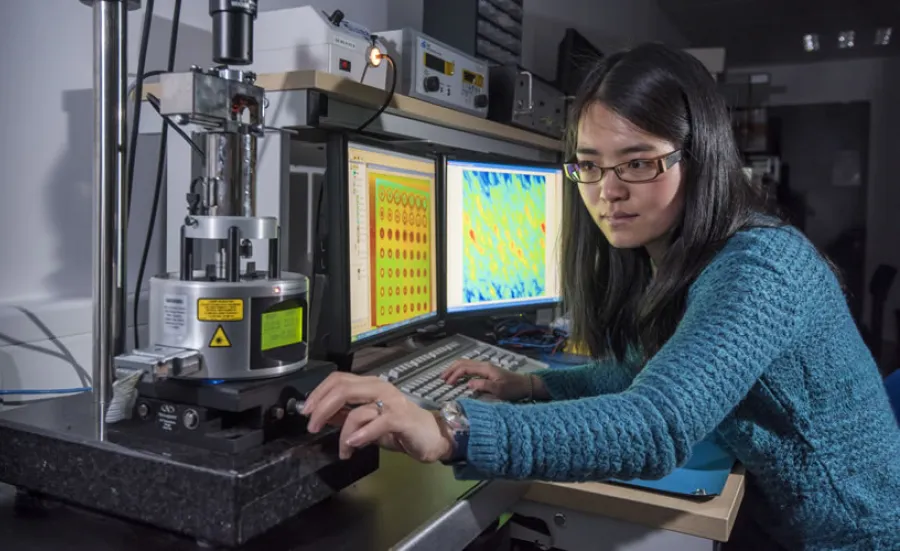
Join over 500 researchers working with industry and government to address some of the problems facing the world today.

Join over 500 researchers working with industry and government to address some of the problems facing the world today.

Electronics and computer science (ECS) is the leading university department of its kind in the UK. We were on of the first universities to be named an Academic Centre of Excellence in Cyber Security Education (ACE-CSE) by the UK government.
天发娱乐棋牌_天发娱乐APP-官网|下载 research is organised around research groups and centres. You'll join one of these groups. This means that specialist academics will always be on hand to hear your ideas and offer help and encouragement. With around 250 staff, ECS has unrivalled depth and breadth of expertise.
You'll have the freedom to run your own project and you'll be supported by a team of supervisors. Direct and regular contact with your supervisors will help you develop your scientific insight, and steer you towards creative and original thinking.
天发娱乐棋牌_天发娱乐APP-官网|下载 graduate school provides training on transferable skills, courses on research methodology, and a working framework to help you settle into a disciplined working routine. You'll also have opportunities to travel to international conferences and events to present your work.
ECS holds an annual careers fair that attracts major companies. The majority of our graduates take up roles in the technology industry or develop their research interests further. If you have a great idea our Future Worlds startup accelerator is there to nurture aspiring entrepreneurs through one-to-one support and its network of investors.
This is our standard 3-year research degree. When you apply, you'll choose one of the following:
SustAI is a multidisciplinary and inclusive doctoral training programme. The CDT will provide 70 fully funded PhD studentships over 5 cohorts. SustAI will equip students with state-of-the-art AI technical skills and a deep understanding of how these skills can be applied to address pressing environmental challenges. To register your interest, please sign-up for the newsletter here.
Contribute to the field of research in computer science and software, either in person or through distance by completing a PhD with us.
Contribute to the field of research in computer science and software, either in person or through distance learning, b
A key feature of ECS is that we are truly interdisciplinary. Many of our research groups sit at the interface between electronics and computer science, including cyber security and cyber physical systems. Areas include:
The University of 天发娱乐棋牌_天发娱乐APP-官网|下载 is pleased to announce that PGR students from EU and Horizon associated countries joining us in 2024-25 will pay the same as UK PGRs for their PhD.
You can either apply for a structured studentship or propose your own PhD idea.
Structured studentships are advertised PhD projects with a title, supervisor, remit and funding already in place. These projects have been set up through collaborations with industry, external partners or they may have been provided through one of several centres for doctoral raining which we take part in.
Taking one of our structured studentships will give you access to additional training, conferences and secondments.
Massively parallel compute architectures, like Graphics Processing Units (GPU) and Field-Programmable Gate Arrays (FPGA), are becoming an integral part of the high-performance computing ecosystem. This project is about effective mapping of large parallel problems onto these architectures, improving the optimised performance of numerical simulations and artificial intelligence. You will access leading supercomputer resources to achieve this.
This project will develop advanced machine learning methods to transform heterogeneous, routinely collected medical data into explainable, uncertainty-aware insights for healthcare decision-making. Combining multimodal data, longitudinal modelling, and personalised uncertainty quantification, the project tackles critical challenges in digital health, improving disease prediction, monitoring, and communication of confidence in clinical decisions.
Revolutionising the semiconductor industry with next generation 2D materials and devices.Moore’s Law is currently being challenged with Nvidia CEO recently claiming it is over. The scaling of transistors cannot continue due to physical limitations of silicon posing a threat to the sustainable evolution of new technologies.
The current increase in data generation is expected to reach unsustainable rates by the end of the decade. This has a strong impact on the environment and therefore new solutions are sought after. The project work is to build the most efficient components by developing the next generation of advanced materials to achieve sustainability in AI applications.
The analysis of financial risk relies on chaotic systems, which are difficult to predict due to their sensitivity and complexity. In this project, you will build on existing machine learning research to create effective prediction approaches, and work alongside experts in chaos modelling, machine learning, and finance to achieve this.
We offer a wide range of fully funded studentships. We run several of our PhD studentships in partnership with doctoral training centres, meaning you'll benefit from enhanced training and guaranteed funding.
These studentships:
Doctoral training centres offer fully funded studentships which include:
In association with the UK joining the EU Horizon Programme, the University of 天发娱乐棋牌_天发娱乐APP-官网|下载 will be introducing and applying an EU fee waiver for students joining us from EU and Horizon associated countries. This means that PGR students joining us from 2024-25 will pay the same fees as UK PGR students.
See here for full information terms and conditions
We offer scholarships and teaching bursaries ourselves. Your potential supervisor can guide you on what is available.
If you’re an international student you may be able to apply for a scholarship from your country.
Find out more about scholarships
Once you've found a supervisor, they can help you with potential funding sources. We offer match funding in some cases.
You'll need to state how you intend to pay for your tuition fees when you submit your application.
Find out more about funding your PhD
You may be able to fund your postgraduate research with funding from your current employer or from industry.
You can borrow up to ?29,390 for a PhD starting on or after 1 August 2024. Doctoral loans are not means tested and you can decide how much you want to borrow.
Find out about PhD loans on GOV.UK
You may be able to win funding from one or more charities to help fund your PhD.
We charge tuition fees for every year of study. If you’re applying for a fully funded project, your fees will be paid for you.
EU Fee Waiver: If your country is part of the Horizon Europe Programme, you will pay the same fees as UK students.
Find out if your country is part of the Horizon Europe programme
2023 to 2024 entry:
| Subject | UK and Horizon programme applicants | International fees |
|---|---|---|
| Computer science full time | ?4,712 | ?25,500 |
| Computer science part time | ?2,356 | ?12,750 |
| Electronics and electrical engineering full time | ?4,712 | ?25,500 |
| Electronics and electrical engineering part time | ?2,356 | ?12,750 |
2024 to 2025 entry:
| Subject | UK and Horizon programme applicants | International fees |
|---|---|---|
| Computer science full time | ?4,786 | ?26,100 |
| Computer science part time | ?2,393 | ?13,050 |
| Electronics and electrical engineering full time | ?4,786 | ?26,100 |
| Electronics and electrical engineering part time | ?2,393 | ?13,050 |
2025 to 2026 entry:
| Subject | UK and Horizon programme applicants | International fees |
|---|---|---|
| Computer science full time | To be confirmed Spring 2025 | ?26,700 |
| Computer science part time | To be confirmed Spring 2025 | ?13,350 |
| Electronics and electrical engineering full time | To be confirmed Spring 2025 | ?26,700 |
| Electronics and electrical engineering part time | To be confirmed Spring 2025 | ?13,350 |
You're eligible for a 10% alumni discount on a self-funded PhD if you're a current student or graduate from the University of 天发娱乐棋牌_天发娱乐APP-官网|下载.
天发娱乐棋牌_天发娱乐APP-官网|下载 research takes place in a multidisciplinary, collaborative environment, organised across globally important research groups and national research centres.



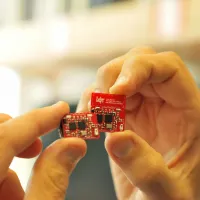

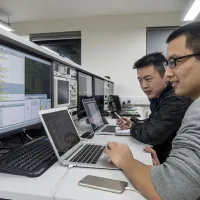

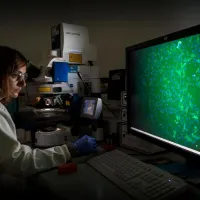









We offer 2 doctoral routes:
If you choose our standard research PhD, decide whether to apply to an advertised research project or create your own proposal.
Whichever programme you choose, you'll need to identify a potential supervisor. Therefore it's a good idea to email supervisors working within your field of interest to discuss PhD projects. It's best to do this well ahead of the application deadline.
You’ll find supervisors’ contact details listed with the advertised project, or you can search for supervisors in the staff directory.
As part of your online application, you’ll need to send us:
The application process is the same whether you're applying for a funded project, or have created a research proposal.

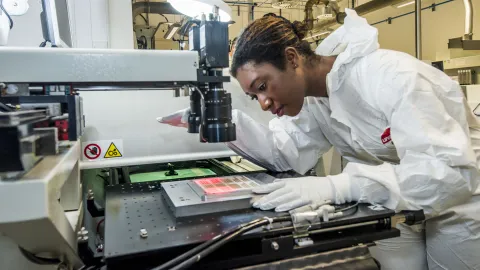
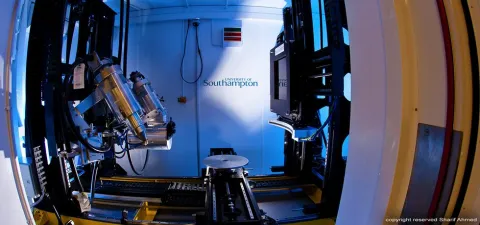
You should have a 2:1 honours undergraduate degree or equivalent qualification in a relevant discipline.
If English is not your first language, you'll need an IELTS minimum level of 6.5 with a 6.0 in writing, reading, speaking and listening.
If you are applying for the SustAI iPhD. you'll need an IELTS minimum level of 6.5 with a 6.0 in writing, reading, speaking and listening.
Your awarded certificate needs to be dated within the last 2 years.
If you need further English language tuition before starting your degree, you can apply for one of our pre-sessional English language courses.
Check the specific entry requirements listed on the project you’re interested in before you apply.
Research degrees have a minimum and maximum duration, known as the candidature. Your candidature ends when you submit your thesis.
Most candidatures are longer than the minimum period.
| Degree type | Full time | Part time |
| Computer science PhD | 2 to 4 years | 3 to 7 years |
| Electronics and electrical engineering PhD | 2 to 4 years | 3 to 7 years |